Faculty of Al-Alsun hosts a series of seminars to promote psychological health
The Community Service and Environmental Development Affairs Sector, at the Faculty of Al-Alsun, Ain Shams University, in cooperation with the Foundation for Psychological and Cultural Services, organized a series of seminars with the aim of promoting mental health, under the auspices of Prof. Dr. Mahmoud El-Metini, President of the University, Prof. Dr. Abdel Fattah Saoud, Vice President for Education and Student Affairs, Prof. Dr. Hesham Tamraz, Vice President for Community Service and Environmental Development, Prof. Dr. Salwa Rashad, Dean of the Faculty, and the supervision of Prof. Dr. Youmna Safwat, Vice Dean for Community Service and Environmental Development.
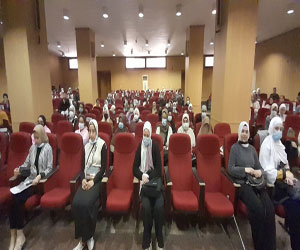 |
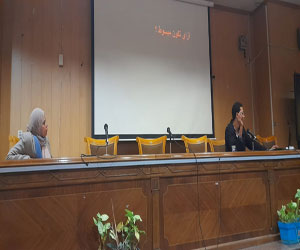 |
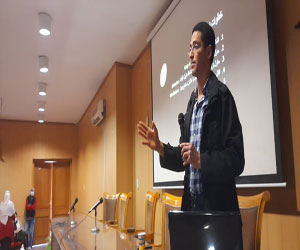 |
||
Prof. Dr. Yomna Safwat, Vice Dean for Community Service and Environmental Development, said in her opening speech that the symposiums include various topics, including how to manage stress, manage time, and steps to achieve belonging among young people, as well as how to become a strong personality, and finally manage dialogue, difference and acceptance of the other.
Mr. Ahmed Ashraf, "Psychologist at Doctors Without Borders", Prof. Yasmin Youssef, "Psychologist at the Psychological Services Foundation", delivered lectures at the seminars.
During the symposium "Achieving Belonging to Youth", Mr. Ahmed Ashraf, a psychologist at Doctors Without Borders, presented the basics of happiness and presented an explanation of the list of psychological needs through five steps to achieve happiness, foremost of which is meeting natural physiological needs such as eating and sleeping, followed by the need for safety in its various forms, whether in social relations, financial or social status, work or studying.
He went on to explain that the third need is people and the formation of solid social relationships to practice belonging with them, whether at home or at work.
The fourth need is the appreciation of those around him, starting with self-esteem, then the appreciation of the mother, parents, and school, stressing that satisfying these desires is what builds self-confidence and self-esteem, which makes a person able to provide useful actions for society.
Finally comes the final stage to achieve happiness, which is the stage of achievements, explaining that achievements should not be historical or global, but any work that is successfully completed, no matter how simple, is an achievement.
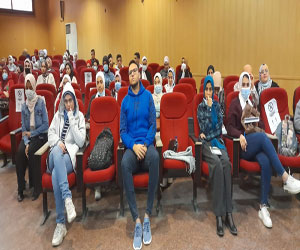 |
 |
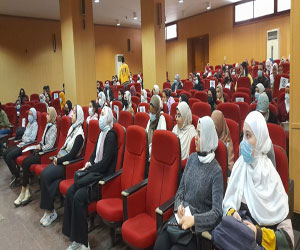 |
||
Also Mr. Ahmed Ashraf, reviewed the circles of belonging, pointing out that the circle of belonging to the homeland is defective due to the incompleteness of the circles of belonging that preceded it; Such as home, school and university, all of which are circles that contribute to the formation of what is beyond in a healthy and sound manner.
He also stressed that satisfying the need for belonging is similar to the roots of the tree that extends in the ground, to strengthen the bonds of belonging in the small captive society and the large society, which is the homeland.
He concluded by presenting guiding steps to lead a mentally healthy life, on top of which is accepting predestination, supporting circles of belonging all the time, enjoying the smallest details, and finally staying away from frustration.
While Mrs. Yasmin Youssef, Psychologist at the Psychological Services Foundation, tackled the subject of stress management and time management, and how to deal with stress more effectively, whether it is family, study, community or other pressures, with the aim of achieving a large degree of psychological balance, happiness and contentment in life.
She pointed out that studies confirm the increase in violence of all kinds in youth, and also indicate that the goal behind this is often not aggression, but rather to prove strength.
Moreover, during this symposium, the meaning of real personal power was discussed, which is to influence others in a civilized manner, prove and preserve oneself and psychological limits, and not allow others to penetrate our psychological limits, think scientifically and avoid thinking errors.
It dealt with the most important source of psychological pressure and suffering, which is anxiety with its various sources, both internal and external, and focused on wrong thinking patterns as one of the most important internal sources of anxiety, and rumors as one of the most important external sources of anxiety in society, and how to deal with each of them.


.svg)




